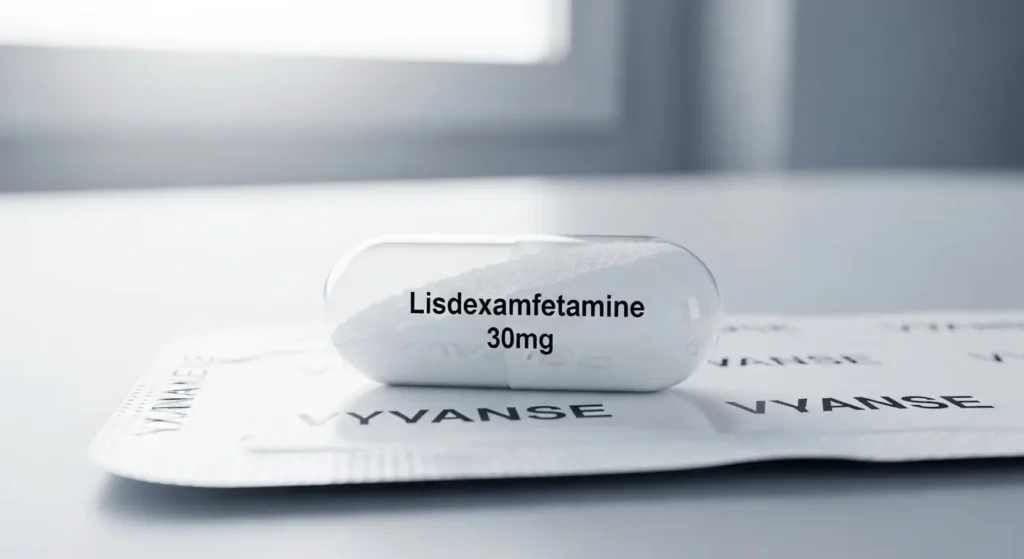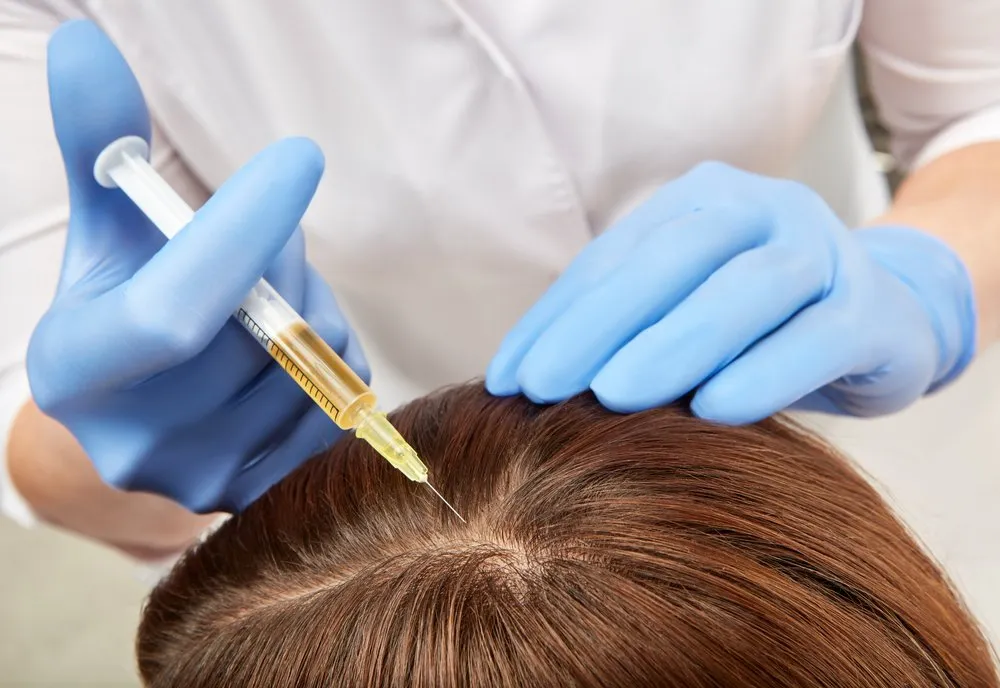Are you worried that lisdexamfetamine may be behind your recent hair shedding? Many patients ask, Does lisdexamfetamine cause hair loss, especially if they notice thinning shortly after starting this ADHD medication. While research shows that hair loss is not a common side effect, some case reports and patient experiences suggest a possible connection.
In this article, you’ll learn what the science says, how to tell if the drug might be contributing, and what practical steps you can take. Our evidence-based guide combines research, expert insights, and patient-friendly advice you can trust.
What Is Lisdexamfetamine and How Does It Relate to Hair Health?

Overview of Lisdexamfetamine (Vyvanse/Elvanse)
Lisdexamfetamine dimesylate, often known by brand names Vyvanse or Elvanse, is a central nervous system stimulant. It is commonly prescribed for:
- Attention Deficit Hyperactivity Disorder (ADHD) in children and adults
- Binge Eating Disorder (BED) in adults
The medication works by increasing dopamine and norepinephrine activity in the brain, improving focus, impulse control, and mood regulation.
Known Side Effects: Common vs. Rare
Like all medications, lisdexamfetamine has potential side effects. Common ones include:
- Decreased appetite
- Dry mouth
- Insomnia
- Increased heart rate
- Anxiety or irritability
Hair loss, however, is not listed as a typical side effect in clinical trial data. That said, rare cases have been reported in post-marketing surveillance and published medical literature.
Can Lisdexamfetamine Cause Hair Loss? What Research and Reports Show
Clinical Trial Data vs. Post-Marketing Reports
- Clinical trials: Hair loss was not identified as a consistent side effect in major ADHD studies.
- Post-marketing: After approval, rare cases of alopecia (hair loss) have been submitted to monitoring systems.
This suggests hair loss may occur, but only in a very small subset of patients.
Case Reports in Medical Literature
Several published reports highlight a possible link:
- Pediatric Case Study (2009): A 5-year-old developed diffuse thinning just 5 days after starting lisdexamfetamine. The hair loss reversed when the drug was discontinued.
- Alopecia Areata Case (2021): A patient developed sudden generalized alopecia areata while on stimulant medication. Symptoms resolved after stopping.
These rare cases highlight the importance of monitoring side effects closely, especially during the first weeks of treatment.
Possible Mechanisms Behind Hair Loss
Experts suggest multiple pathways may explain the connection:
- Stimulant effects on stress hormones → Prolonged cortisol elevation can trigger shedding.
- Appetite suppression & nutritional deficiencies → Reduced protein, iron, or zinc intake can weaken hair follicles.
- Direct follicle impact → Though less proven, some stimulants may disrupt the natural hair growth cycle.
Real-World Experiences from Patients
Many patients have discussed lisdexamfetamine and hair loss on forums like Reddit or ADHD support groups. Some patterns include:
- Shedding is noticed within weeks to months of starting treatment
- Hair loss is described as diffuse thinning rather than patchy bald spots
- Some report improvement after switching medications or adjusting dosage
It’s important to remember that anecdotes are not scientific evidence, but they can highlight trends worth exploring with your doctor.
Differential Diagnosis: Is It the Medication or Something Else?
Types of Hair Loss to Consider
- Telogen Effluvium (TE): Stress-related shedding, often delayed by 2–3 months after a trigger.
- Anagen Effluvium: Rapid loss during the growth phase, usually due to toxic or medical factors.
- Alopecia Areata (AA): Autoimmune attack on follicles, can be triggered by medications or stress.
Timing of Onset Matters
- Medication-related hair loss may occur within days or weeks.
- Nutritional or stress-related shedding often appears after several months.
How Doctors Evaluate the Cause
If you notice hair loss, your healthcare provider may recommend:
- Blood tests: Thyroid, iron, vitamin D, and zinc levels
- Medication review: Checking for drug interactions or other culprits
- Dermatology evaluation: Scalp exam, trichoscopy, or biopsy if needed
Management and Next Steps If You Notice Hair Loss
Talk to Your Doctor First
Never stop ADHD medication abruptly. Instead:
- Discuss side effects openly
- Ask about dosage adjustments
- Explore alternative ADHD medications if necessary
Supportive Strategies for Hair Health
- Balanced nutrition: Focus on protein, leafy greens, iron-rich foods, and omega-3s
- Supplements (if deficient): Vitamin D, zinc, or biotin as recommended
- Stress management: Exercise, mindfulness, or therapy to reduce cortisol spikes
Dermatology Options
- Topical Minoxidil: Can stimulate regrowth in some patients
- Platelet-Rich Plasma (PRP) Therapy: Enhances follicle recovery
- Scalp Micropigmentation (SMP): Cosmetic option for long-term thinning

Expected Recovery Timeline
If lisdexamfetamine is the cause, hair usually regrows within 3–6 months after stopping or adjusting treatment.
FAQs
What are the chances of hair loss with lisdexamfetamine?
Very rare, reported only in isolated cases, not as a common side effect.
How quickly could hair loss start if related?
Within days to weeks, faster than typical stress-related shedding.
Is hair loss from Vyvanse permanent?
No. In most documented cases, hair regrows after the drug is stopped.
Should I stop my medication immediately?
No. Always consult your prescribing doctor before making medication changes.
What tests should I ask for?
Request iron studies, thyroid function, vitamin D, zinc, and a dermatology referral if needed.
Summary
While lisdexamfetamine-induced hair loss is very rare, case studies and patient reports confirm it can happen. Most often, the shedding is reversible after discontinuation or dose adjustment. If you notice hair changes, consult your doctor promptly to evaluate other possible causes, check nutritional status, and explore safe treatment alternatives.
Next Step
If you’re concerned about hair loss while taking lisdexamfetamine, you don’t have to manage it alone. At our clinic in Islamabad, Dr. Rana Irfan and his team specialize in both hair restoration and medical management of hair loss. We provide expert evaluation, advanced treatments like PRP, and personalized care to restore your confidence.
